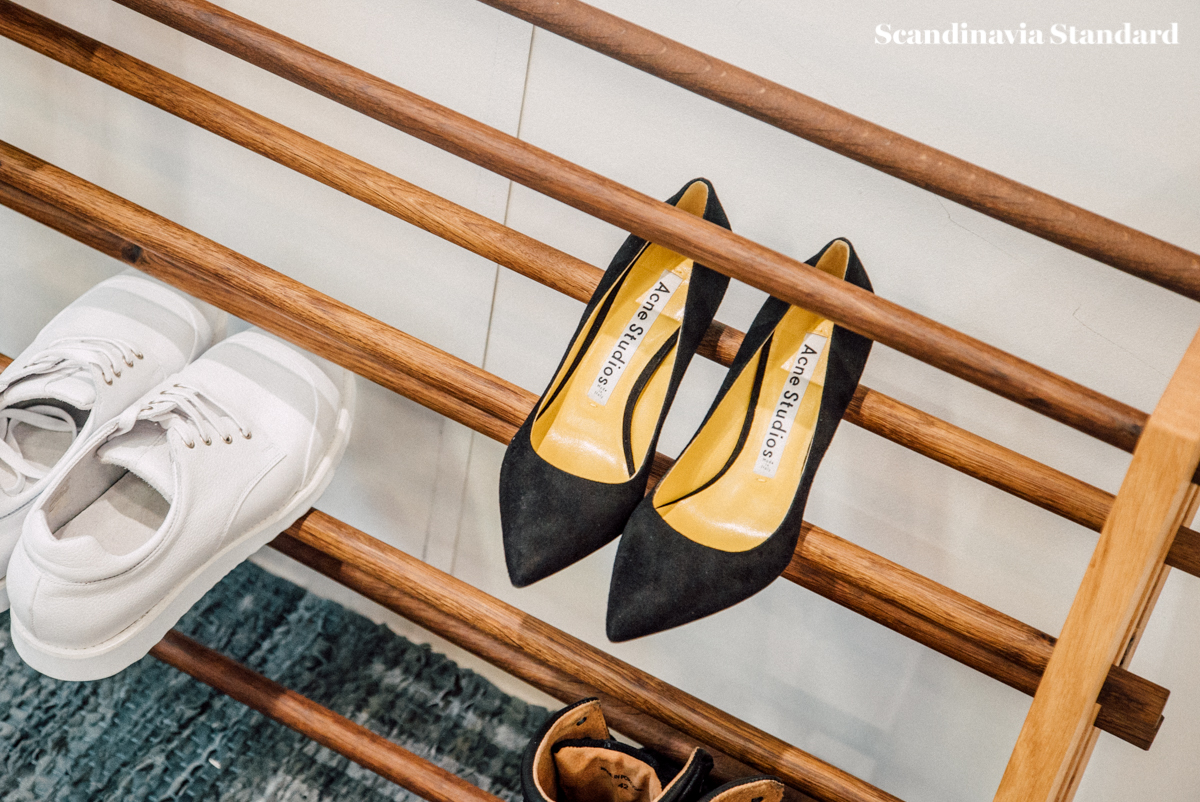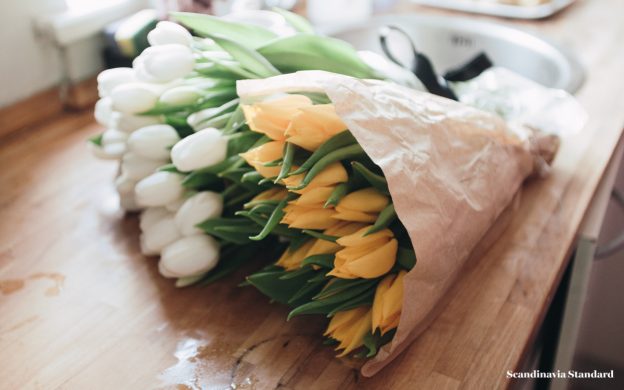I think it’s fair to say that there are some universal rules to being a Good Dinner Guest (GDG): be respectful. Compliment the cook. Don’t throw up. Flush. These are basics.
But what about all those little things? You know what I mean; the stuff you can’t possibly know about until it’s too late. Maybe you accidentally bring a wheel of cheese without knowing that cheese (or things in wheel shape) are an insult in that particular country. I don’t know, I’m sure that’s a thing somewhere.
Wouldn’t it be easier to know this stuff in advance? What to bring, what to wear, how long to stay? You’re so right, it would be! So let’s get to it.
 Show up on time
Show up on time
I know some people believe in showing up to dinner parties at least a half hour late and in some cultures that’s the way it’s done. Not in Scandinavia. Be punctual. Dinner will be ready at the appointed time and food doesn’t stay hot forever, so…
 Take off your shoes
Take off your shoes
It’s just the way it’s done in Denmark. Shoes are left either outside the front door or in the hallway; if you’re not sure, ask your host as you enter.

 A pressed shirt wouldn’t hurt
A pressed shirt wouldn’t hurt
I’m just saying, people dress well in Denmark. You don’t need to wear a ballgown but don’t expect anyone to show up in sweats.
 Bring a gift/gifts
Bring a gift/gifts
If you’re a student or broke this doesn’t necessarily apply, but otherwise it is considered correct form to bring a gift to dinner. A bottle of wine, while appreciated, doesn’t really count if it’s for the dinner itself. Flowers or chocolates (or both, all you millionaires out there) are popular, as are candles or small household goods like votive holders, vases, etc. Gifts should be in gift bags or nicely wrapped. A card is not required. If you’re low on cash, Netto has some wonderfully cheap flowers; simply decorating them with brown paper and ribbon is a nice touch.
If you are the gift receiver, it is good form to open the gift in the presence of the gift giver.

 Don’t eat and run
Don’t eat and run
Dinner parties in Scandinavia are not quick. Be prepared to have a few courses plus coffee or a drink afterwards. You agreed to come, you’re in this thing for the long haul. Enjoy it!
 Saying thank you
Saying thank you
A call or note of thanks afterward is always appreciated but neither expected nor necessary. What is appropriate is to say tak for sidst (thanks for the last time) when you next see your host.

Additional thoughts:
- It’s not strange to bring kids, even very young ones, to an adult dinner party; just ask your host first
- If everyone else is Danish but you don’t speak the language, there may be times when the guests speak Danish to each other at the table. If you’d like to understand what’s going on, don’t be afraid to gently remind them to speak slowly or to change to English (or other common language).
Now you’ve got the tools; soon you’ll be wining and dining like a local! Tell us if we’ve missed anything or you have a good Danish dinner party story to share.

